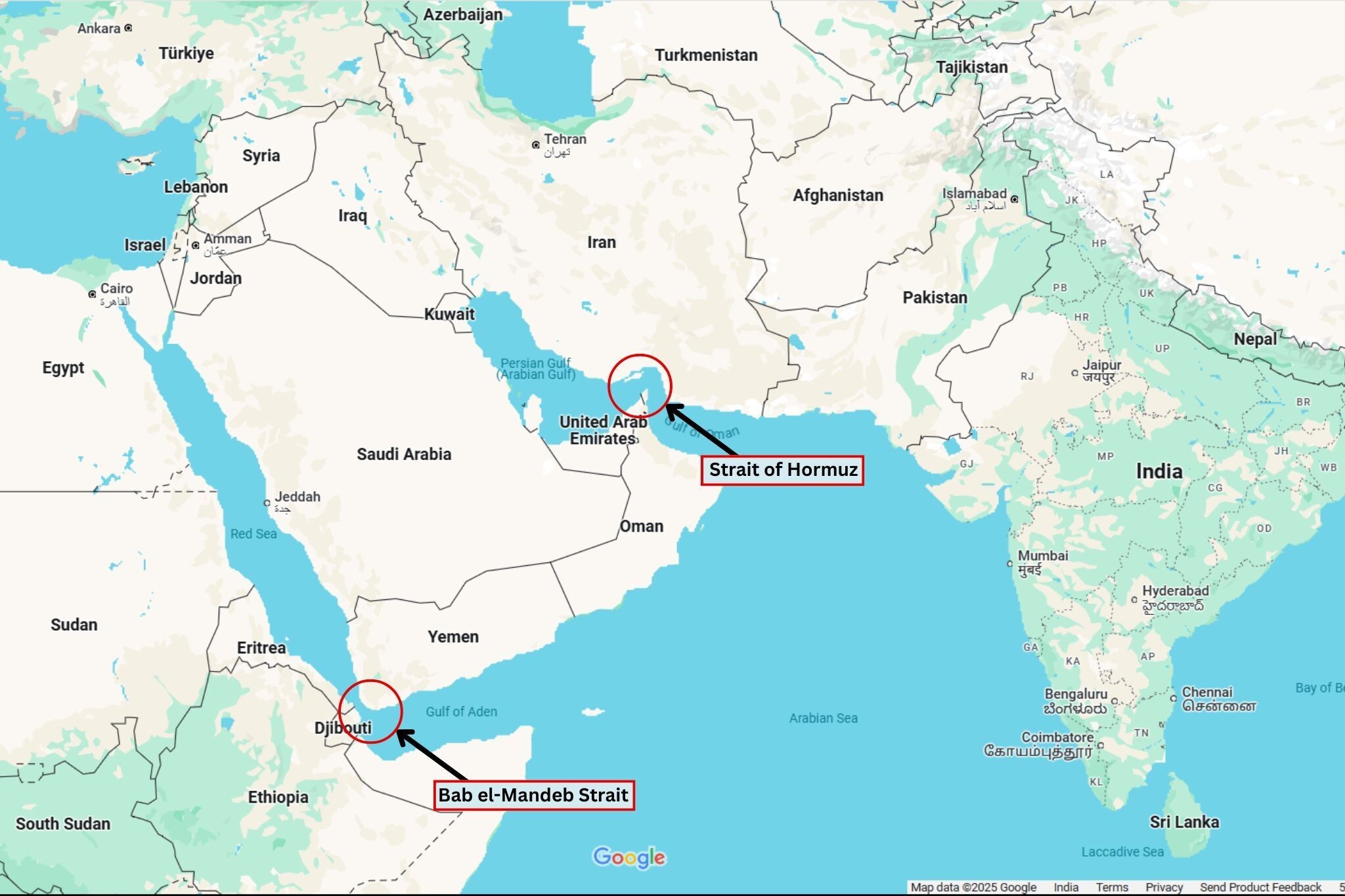您想继续阅读英文文章还
是切换到中文?
是切换到中文?

THINK ALUMINIUM THINK AL CIRCLE

India’s commerce ministry will convene a meeting on June 27 with key stakeholders, including shipping lines, exporters, container firms, and other departments, to assess the impact of the ongoing Iran-Israel conflict on India’s overseas trade. According to an official source, the objective is to evaluate disruptions and address emerging concerns tied to the region’s geopolitical instability.
 Image for referential purposes only (Source: Google Map)
Image for referential purposes only (Source: Google Map)
The escalating conflict has already triggered civilian casualties, economic damage, and strained international relations. For India, the implications are not just diplomatic but directly commercial, particularly given the importance of regional trade routes.
The Strait of Hormuz: India’s trade lifeline
The Strait of Hormuz, flanking Iran and largely under its military oversight, is one of the most crucial arteries for global maritime oil and gas trade. For India, it acts as a vital conduit to several energy-exporting and aluminium-trading nations. This narrow strait (only 33 km wide at its slimmest point) connects the Persian Gulf to the Arabian Sea and Indian Ocean and serves as a strategic chokepoint.
While historically important, India’s relations with Iran have cooled in recent years, particularly as Tehran has deepened ties with China and India has strengthened its strategic alignment with Israel and the US. These geopolitical shifts, compounded by Iran’s theocratic regime and Western sanctions, have dampened bilateral trade. In contrast, India’s relationship with Israel is robust, spanning defence, technology, and high-level diplomatic exchanges.
On the aluminium front, India’s trade through the Strait of Hormuz is dominated by Gulf Cooperation Council (GCC) nations. Exports largely flow to Saudi Arabia, UAE, Qatar, Oman, and Kuwait, while imports predominantly come from UAE and Saudi Arabia. Iran, Iraq, Bahrain, and Yemen have far smaller footprints in this trade stream.
“We are in for big trouble now because of this war. It will have a cascading effect on India’s trade with West Asian countries,” warned Sharad Kumar Saraf, Mumbai-based exporter and founder chairman of Technocraft Industries India.
…and so much more!
SIGN UP / LOGINResponses








